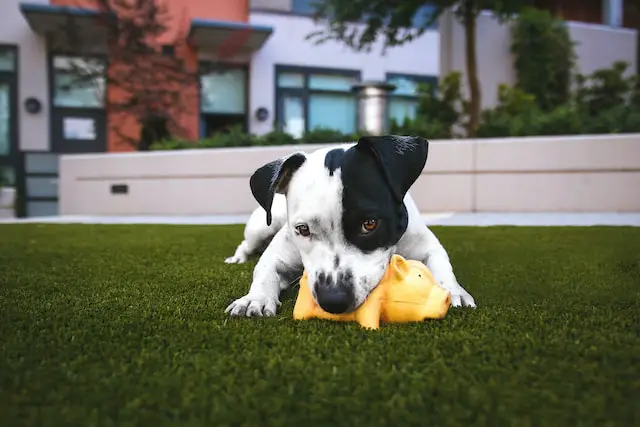Dog aggression can be a concerning and challenging behavior for many pet owners to address. Whether it’s directed towards other dogs, humans, or even inanimate objects, aggression can not only jeopardize the safety of those around you but also strain the relationship between you and your furry companion. In such instances, consistent training emerges as a crucial tool in managing and modifying aggressive tendencies in dogs.

Understanding Dog Aggression
Before delving into training techniques, it’s essential to grasp the various factors that contribute to dog aggression. Aggression can stem from fear, territorial instincts, resource guarding, social anxiety, or even medical conditions. This can lead to your dog biting someone or even yourself getting bitten by yours or someone else’s dog. In such cases, choosing a lawyer is important to navigate the legal implications of dog bites. Identifying the root cause behind the aggression is paramount in tailoring a suitable training approach. Without consistent and well-informed training, attempting to address aggression might result in temporary fixes or exacerbate the issue.
The Role of Consistency in Training
Consistency lies at the core of any successful dog training regimen, and this principle holds even more significance when dealing with aggression. Dogs thrive on routine and clear expectations, making consistent training methods an integral aspect of modifying their behavior. From utilizing consistent verbal cues and body language to maintaining a uniform training schedule, every action reinforces the message that certain behaviors are undesirable while others are rewarded. Inconsistency, on the other hand, can confuse the dog and hinder progress, potentially leading to frustration for both the pet owner and the dog.
Effective Training Techniques
Many training techniques can aid in managing dog aggression, but their efficacy hinges on the consistency with which they’re implemented. Positive reinforcement techniques, such as reward-based training, redirection, and desensitization, have shown promising results.
Implementing these methods consistently helps reprogram the dog’s response to triggering situations and nurtures a healthier bond between the dog and the owner. Consistency extends beyond the training sessions – it involves employing the same techniques in various settings and situations, ensuring the dog understands the expected behavior regardless of the context.
- Reward-Based Training: This technique involves rewarding desired behaviors with treats, praise, or toys. Consistently rewarding your dog for displaying non-aggressive behaviors encourages them to associate positive outcomes with appropriate actions. Over time, this reinforcement helps to replace aggressive responses with more desirable ones.
- Redirection: When you notice signs of aggression, redirecting your dog’s focus to a positive and engaging activity can be highly effective. This can include offering a toy or initiating a simple command like “sit” or “stay.” Consistently redirecting their attention away from triggers helps prevent the escalation of aggressive behavior.
- Desensitization: This technique involves gradually exposing your dog to the triggers of their aggression in controlled and incremental steps. By consistently exposing them to these triggers at a manageable level and rewarding calm behavior, you can help desensitize them to the stimuli over time. This approach requires patience and consistency to gradually decrease the intensity of their negative reactions.
- Counterconditioning: Counterconditioning pairs the presence of a trigger with a positive experience. Consistently associating something pleasant, like treats or playtime, with the trigger helps change the dog’s emotional response. Over time, the trigger becomes a signal that predicts good things rather than evoking aggressive reactions.
The Positive Outcomes of Consistent Training
Consistent training can yield remarkable results in managing dog aggression. With time, patience, and dedication, pet owners can witness a gradual decrease in aggressive behaviors and an improvement in their dog’s overall demeanor. Beyond the behavioral changes in the dog, consistent training fosters a deeper connection and mutual trust between the owner and their four-legged companion. It empowers the owner with the skills to effectively address and manage aggression, creating a safer and more harmonious living environment for everyone involved.
Maintaining Patience and Perseverance
Consistency in training for managing dog aggression goes hand in hand with patience and perseverance. Aggressive behaviors might not change overnight, and setbacks are not uncommon. Especially new pet owners must remain patient and not become discouraged by slow progress. Dogs can sense frustration, and it may impede their learning process.
Consistent training requires a commitment to the long-term goal of behavior modification. With each small victory, whether it’s a successful redirection or a calmer reaction to a trigger, the bond between the owner and the dog strengthens, reinforcing the importance of unwavering dedication.
Professional Guidance and Support
In cases of severe or complex aggression, seeking professional help from a certified dog behaviorist or trainer is advisable. These experts possess the knowledge and experience to assess the specific aggression triggers, tailor a comprehensive training plan, and guide the owner through its consistent implementation.
Their guidance not only ensures the safety of all parties involved but also enhances the effectiveness of the training process. A professional’s input can provide fresh insights, alternative techniques, and a more objective perspective, which are invaluable in navigating the challenges of managing dog aggression.
Holistic Approach to Consistent Training
Consistency extends beyond the training techniques themselves – it encompasses a holistic approach to a dog’s lifestyle. Factors such as nutrition, exercise, mental stimulation, and a secure environment play a significant role in a dog’s overall behavior. Maintaining a consistent daily routine that incorporates exercise, mental enrichment, and regular interactions can help alleviate stress and anxiety, which often contribute to aggressive behaviors. Consistency in these aspects reinforces the sense of security that dogs need to thrive emotionally and mentally, thus complementing the efforts of training.

Patience, professional guidance, and a holistic approach fortify the foundation, creating a comprehensive strategy that pet owners can employ. By consistently applying positive reinforcement techniques, maintaining an unwavering dedication, and seeking assistance when necessary, pet owners pave the way for a harmonious relationship with their dogs. The transformation that consistent training can bring about is not solely about correcting behaviors – it’s about nurturing a bond built on trust, understanding, and shared growth. Through this consistency, both the dog and the owner embark on a transformative journey that leads to a brighter, safer, and more fulfilling companionship.


Leave a Reply